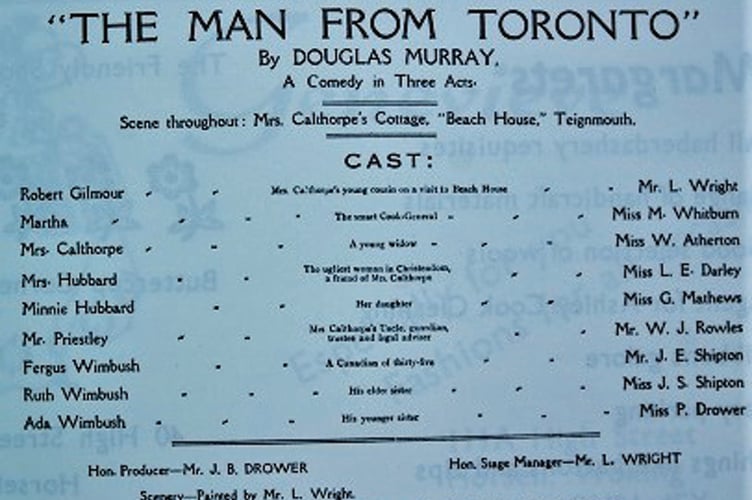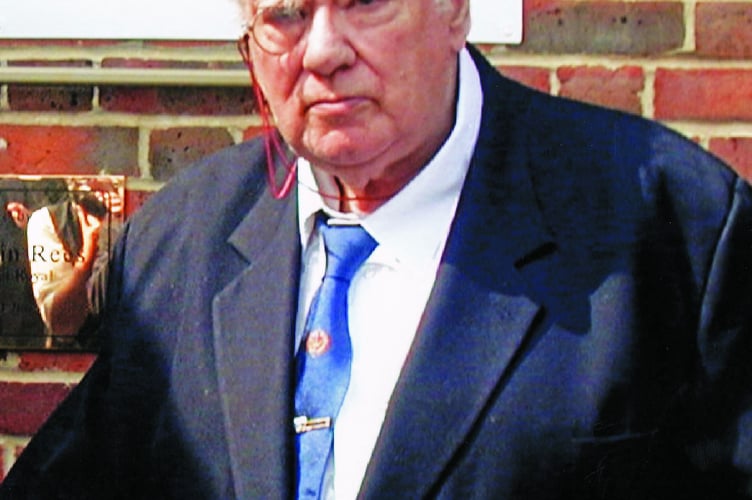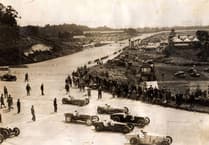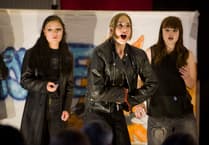HORSELL Amateur Dramatic Society – HADS – is celebrating its centenary this year, having put on plays every year since 1922, interrupted only by the Second World War and the coronavirus pandemic. Stuart Flitton looks back at the history of one Woking’s most active groups and the people who helped it to thrive.
THE roots of HADS go back to the summer of 1905, when villagers put on a production of A Midsummer Night’s Dream at the Horsell Garden Fête.
This was organised by the curate, the Rev John Evelegh, who hadbeen running Shakespeare readings for men. Fortunately, the play included women, such as Phyllis Drower who, along with her father and brother, became a founder member of HADS.

However, it wasn’t until shortly after the First World War, a group of people, including the Drowers and John Shipton with his sisters, met in a room above a bank in Horsell and decided to set up a drama group.
The move was a little tentative with the first production, a farce, Our Flat, performed in private. The play, which had been a big hit on the professional stage in the late 19th century, went down so well that the group decided to set itself up officially with John Shipton as secretary. On February 2, 1922, it put on its first public performance in the parish hall, which had been built in 1907, with The Man from Toronto.
The play was a great success and the first of nearly 40 by the group in the 1920s and ‘30s.
Performances were very different from today, with music provided by a three-piece band, sitting just in front of the stage.
The front row of the audience was some distance away and tiers were built so those farther back could see. The front-of-house volunteers wore evening dress and the Saturday night cast party was often a very formal affair held at the president’s house.

One of the HADS stalwarts was Irene Hutchence, who joined in 1928 after being invited by a fellow cast member of a play in Woking held to raise funds for the League of Nations.
“It was a tremendous honour,” Irene recalled in an interview for the HADS golden anniversary. “I got a form to fill in and then had to wait for ages before a letter came from the secretary saying I had been accepted.
“You didn’t ask them – they asked you. You couldn’t just go along and offer your services. It was a very exclusive kind of club,” added Irene who married fellow HADS member, Eric.
The first director was John Drower, described as a real taskmaster who would stand at the back of the hall during rehearsals shouting at the actors if he thought they were speaking too softly.
His son Leslie recalled: “I’ve seen players reduced to tears many a time.”
Irene said that in her early years at HADS, one man was expelled from the society. “I’ve no idea what he’d done,” she said. “I wasn’t a big enough noise to be told that.”
HADS plays soon became an important part of Horsell with virtually the whole village coming along. The society didn’t just stage plays in the parish hall, but also gave performances at the Holloway Sanatorium, Brookwood Hospital and Broadmoor, then still known as a criminal lunatic asylum.

The Second World War put a stop to any big productions, although HADS did take part in festivals run by the British Drama League.
The first production after the war was The Barretts of Wimpole Street in November 1946. The Hutchences were still deeply involved in HADS and Irene later recalled the post-war show: “It was a grand reunion; we tried to get everyone in. We hired costumes which had been stored during the war; the crinolines were limp and the wigs were urgh! But it was a marvellous occasion.”
One of the new members was a teacher at St Andrew’s School in Horsell, who was in five plays and also worked backstage. He was known for having an amazing memory, learning his lines after just one read-through.
That teacher was the late Patrick Moore, who would go on to become Britain’s first celebrity astronomer and the first presenter of The Sky at Nighton BBC TV. He was later knighted for services to astronomy.




